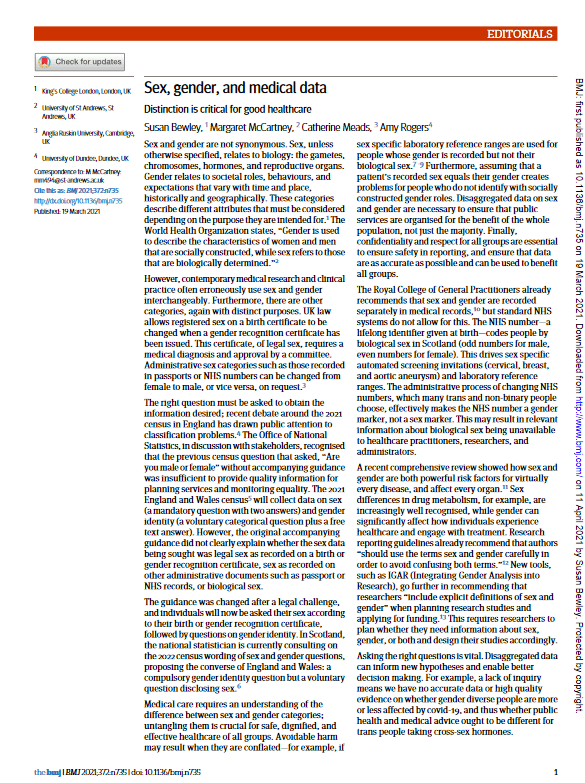Sex and gender are not synonymous. Sex, unless otherwise specified, relates to biology: the gametes, chromosomes, hormones, and reproductive organs. Gender relates to societal roles, behaviours, and expectations that vary with time and place, historically and geographically. These categories describe different attributes that must be considered depending on the purpose they are intended for. The World Health Organization states, “Gender is used to describe the characteristics of women and men that are socially constructed, while sex refers to those that are biologically determined.”
However, contemporary medical research and clinical practice often erroneously use sex and gender interchangeably. Furthermore, there are other categories, again with distinct purposes. UK law allows registered sex on a birth certificate to be changed when a gender recognition certificate has been issued. This certificate, of legal sex, requires a medical diagnosis and approval by a committee. Administrative sex categories such as those recorded in passports or NHS numbers can be changed from female to male, or vice versa, on request…
Bewley, S., McCartney, M., Meads, C., & Rogers, A. (2021). Sex, gender, and medical data. BMJ.






